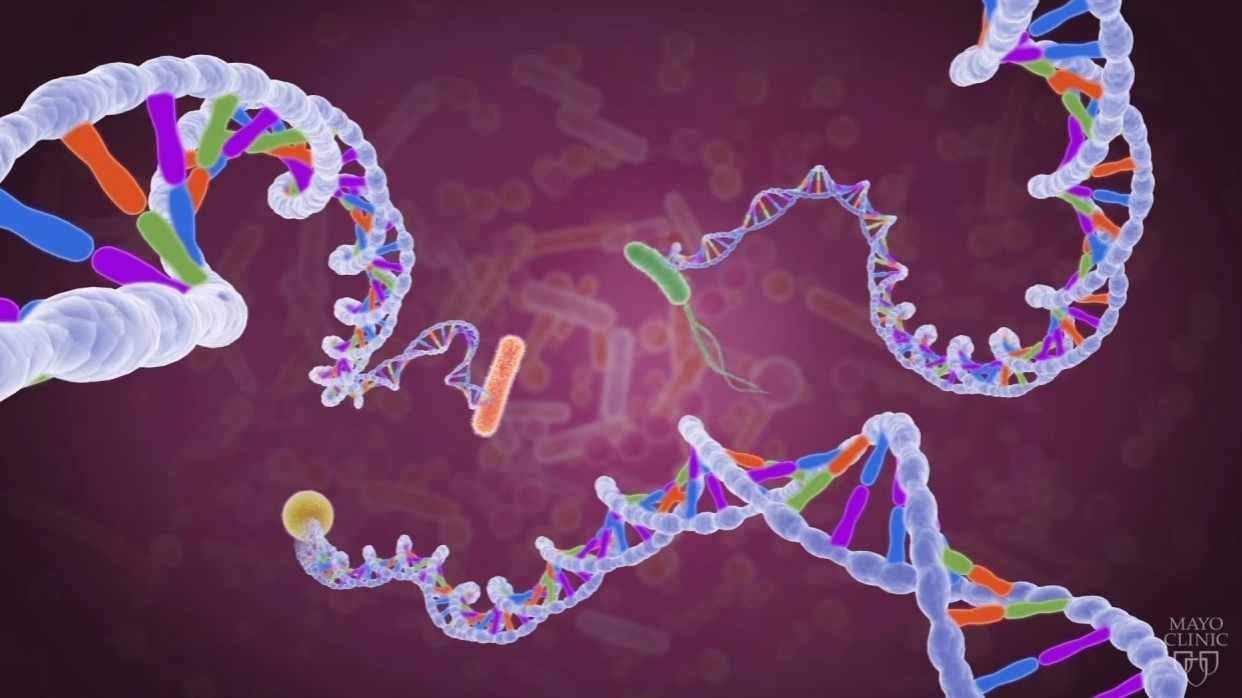As we step into 2024, the field of aging and longevity research is experiencing unprecedented advancements. Scientists and researchers are making significant strides to understand the intricate mechanisms of aging and to develop innovative strategies to promote longevity. This article delves into the top trends in aging and longevity research for 2024, highlighting the most promising developments that could revolutionize our approach to aging.
Personalized Medicine and Genomics
One of the most transformative trends in aging and longevity research is the rise of personalized medicine, underpinned by advancements in genomics. Personalized medicine tailors medical treatment to the individual characteristics of each patient, including their genetic makeup. In 2024, the integration of genomic data is expected to provide deeper insights into the genetic factors that influence aging and longevity.
Researchers are increasingly focusing on identifying genetic variants associated with longer lifespans and resistance to age-related diseases. By understanding these genetic factors, scientists aim to develop targeted therapies that can mitigate the effects of aging and extend healthy lifespans. The use of CRISPR-Cas9 and other gene-editing technologies will play a crucial role in this endeavor, allowing for precise modifications to the genome that could delay the onset of age-related decline.
Senolytics: Targeting Senescent Cells
Senolytics, a class of drugs that selectively eliminate senescent cells, are gaining traction as a promising approach to combat aging. Senescent cells are damaged cells that no longer divide but remain metabolically active, secreting harmful substances that contribute to tissue dysfunction and inflammation. Accumulation of these cells is a hallmark of aging and is linked to various age-related diseases.
In 2024, we can expect significant progress in the development and clinical testing of senolytic therapies. Early studies have shown that clearing senescent cells can improve tissue function, reduce inflammation, and extend lifespan in animal models. Human trials are now underway, and researchers are optimistic that senolytics could become a viable intervention to promote healthy aging and longevity.
Epigenetic Reprogramming
Epigenetics, the study of changes in gene expression without altering the underlying DNA sequence, is another exciting frontier in aging research. Epigenetic reprogramming involves resetting the epigenetic markers that regulate gene expression, essentially turning back the biological clock of cells.
In 2024, advances in epigenetic reprogramming are expected to pave the way for novel anti-aging therapies. Researchers are exploring techniques to reprogram cells to a more youthful state, thereby rejuvenating tissues and organs. This approach holds promise for treating age-related diseases and extending healthy lifespan. The use of Yamanaka factors, a set of transcription factors that can induce pluripotency in cells, is one of the key strategies being investigated.
Microbiome and Aging
The human microbiome, the collection of microorganisms living in and on our bodies, plays a crucial role in health and disease. Emerging research indicates that the composition and diversity of the microbiome change with age and that these changes may contribute to the aging process and age-related diseases.
In 2024, microbiome research is expected to uncover new insights into the relationship between the microbiome and aging. Scientists are investigating how modulating the microbiome through diet, probiotics, and other interventions can influence healthspan and longevity. Personalized microbiome therapies tailored to an individual’s unique microbial profile could become a powerful tool in promoting healthy aging.

Nutritional Interventions and Fasting
Dietary interventions have long been studied for their potential to extend lifespan and improve healthspan. Caloric restriction, intermittent fasting, and specific dietary components have shown promise in delaying aging and reducing the risk of age-related diseases.
In 2024, research into nutritional interventions and fasting is expected to yield more precise guidelines for promoting longevity. Scientists are exploring the molecular mechanisms underlying the benefits of these interventions, such as the activation of autophagy and the regulation of metabolic pathways. Personalized nutrition plans based on an individual’s genetic and metabolic profile could become a cornerstone of longevity strategies.
Artificial Intelligence and Aging Research
Artificial intelligence (AI) is revolutionizing many fields, and aging research is no exception. AI and machine learning algorithms are being employed to analyze vast amounts of data, identify patterns, and predict outcomes in aging studies.
In 2024, AI is expected to accelerate the discovery of aging biomarkers, identify potential drug targets, and optimize clinical trial designs. By integrating AI with other technologies, researchers can gain a more comprehensive understanding of the aging process and develop more effective interventions to promote longevity.
Regenerative Medicine and Stem Cell Therapy
Regenerative medicine, particularly stem cell therapy, holds great promise for repairing and rejuvenating aging tissues and organs. Stem cells have the unique ability to differentiate into various cell types and regenerate damaged tissues.
In 2024, advancements in stem cell research are anticipated to bring regenerative therapies closer to clinical application. Scientists are exploring the use of stem cells to treat age-related conditions such as osteoarthritis, cardiovascular disease, and neurodegenerative disorders. The development of safe and effective stem cell-based treatments could significantly enhance healthspan and quality of life in older adults.
Biomarkers of Aging
Identifying reliable biomarkers of aging is crucial for assessing biological age and the effectiveness of anti-aging interventions. Biomarkers can provide objective measures of an individual’s aging process, helping to tailor interventions and monitor their impact.
In 2024, research into biomarkers of aging is expected to advance significantly. Scientists are investigating a wide range of biomarkers, including molecular, cellular, and physiological indicators. The development of comprehensive biomarker panels could enable more accurate assessments of biological age and facilitate personalized approaches to promoting longevity.
Longevity Drugs and Supplements
The search for pharmacological interventions that can extend lifespan and improve healthspan continues to be a major focus of aging research. Several compounds, including metformin, rapamycin, and NAD+ precursors, have shown promise in preclinical and early clinical studies.
In 2024, we can expect further exploration of longevity drugs and supplements. Researchers are conducting large-scale clinical trials to evaluate the safety and efficacy of these compounds in humans. The identification of new drug candidates and the optimization of existing ones could lead to the development of effective interventions to slow aging and enhance longevity.
Conclusion
The field of aging and longevity research is rapidly evolving, with 2024 poised to be a year of significant breakthroughs. From personalized medicine and senolytics to epigenetic reprogramming and AI-driven discoveries, the trends highlighted in this article represent the cutting edge of scientific efforts to understand and combat aging. As researchers continue to unravel the complexities of the aging process, the prospect of extending healthy lifespans and improving the quality of life for older adults becomes increasingly attainable.




